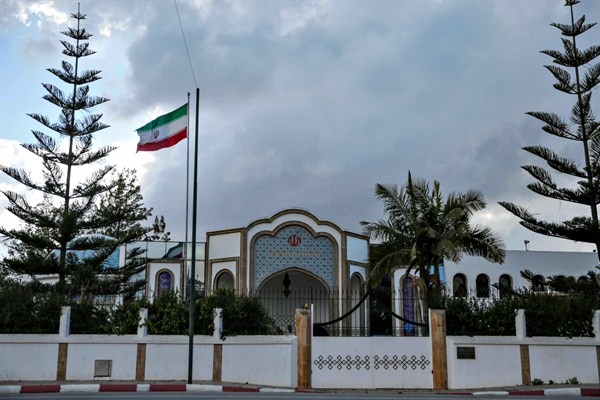In early May, Morocco severed diplomatic relations with Iran, after having normalized relations with Tehran in January 2017. Rabat had previously severed ties in 2009 over charges that Iran had interfered in Morocco’s domestic affairs. This time, the accusation had to do with meddling in Western Sahara, a territory that Morocco claims sovereignty over, but which is home to a separatist movement, the Polisario Front. In an email interview, Ann Wainscott, assistant professor of political science at Miami University and the 2017-2018 American Academy of Religion senior fellow at the U.S. Institute of Peace, discusses the causes of the current dispute, how bilateral ties had evolved prior to the most recent break in relations, and the regional implications of the current tensions.
World Politics Review: What was the proximate cause of the dispute that led Morocco to sever diplomatic relations with Iran earlier this month, and what other developments—whether in Rabat, Tehran or elsewhere—might have played a role?
Ann Wainscott: According to the Moroccan Foreign Ministry, the reason for the diplomatic break is Iranian support to the Polisario Front, the movement that seeks independence in the disputed territory of Western Sahara. Morocco claims Western Sahara and the massive phosphate reserves contained there, but the Polisario have been waging a guerilla-style resistance to Moroccan sovereignty over the territory for decades. The Moroccan Foreign Ministry accuses Iran of providing weapons to the Polisario through the Lebanese movement Hezbollah, an ally of the Iranian regime, channeled through the Iranian Embassy in Algiers. Algeria has long supported the Polisario’s claims to Western Sahara, and a number of refugee camps are on Algerian territory, leading to strained relations between the two neighboring countries.

